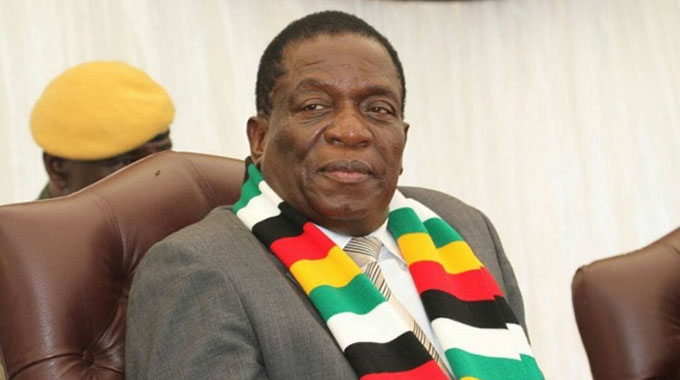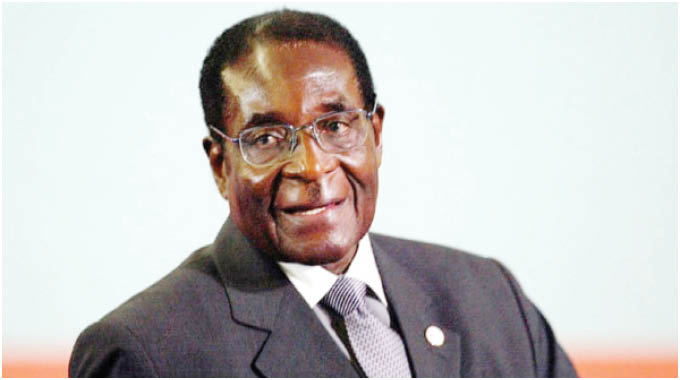
The Sunday News

Richard Runyararo Mahomva
ONCE again, February is upon us. To some, this is the month of love. As indicated in one instalment here a few weeks ago, to some of my gender the Stingy Men Association campaign continues. To the global pan-Africanist/anti-colonial movement, this is the Black History Month.
To revolutionary Zimbabweans opposed to nostalgias of colonial relics, this is the month we celebrate the life and times of Zimbabwe’s illustrious doyen of Zimbabwe’s decolonisation path, the Late Former Head of State Cde Robert Gabriel Mugabe (May history forget us when we forget him). In one or many ways, this month is both emotive and revolutionary in all essence.
It is in this month that His Excellency the President of the Republic of Zimbabwe, Cde Emmerson Dambudzo Mnangagwa has been taking up milestone strides in revisiting pertinent areas of our historically distressed national question. On Friday, Cde Mnangagwa was in dialogue with his Political Actors Dialogue (Polad) counterparts. This esteemed multi-political stakeholder national policy conversation steering organ held a virtual meeting to discuss national development-related issues affecting the nation.
Polad was founded for the key objective of finding indigenous solutions for indigenous problems. This comes against a backdrop of high political polarisation which repressed state-driven possibilities for a plural political-culture in Zimbabwe.
President Mnangagwa’s domestic political re-engagement trajectory illustrates a defined transitional re-orientation of the establishment mainly marked by borrowing the intrinsic nation-building values of yesterday and abandoning the political depravities which sustained a mythical and narcissist ‘‘one-centre of power’’. Under Cde Robert Mugabe, national belonging was rigorously contained in terms of radicalised partisan essentialism.
This was however, justified considering that the paternal attribute of Zanu-PF was under threat from many fronts after the land reform programme. Imperialist ideological arsenal was not retreating in its demonisation ploy. Cde Mugabe, the one time darling of the West became an overnight tyrant when he reclaimed our right to land ownership. This inevitably facilitated polemic attacks on Cde Mugabe by countless neo-colonial proponents. The country’s economic meltdown was weaponised to dislodge Zanu-PF.
To me, Cde Mugabe stands out as a decorated cadre of the decolonisation agenda. He is a timeless revolutionary who should be exceedingly celebrated for his great exploits in this regard. However, his mistakes must be distinctly acknowledged as a philosophical mirror to where we collectively blundered as a nation. It will be remiss to align the current structural entrenchment of a governance crisis to a single person.
To some extent, President Mnangagwa has emerged as a relevant transitional panacea to right the wrongs which were witnessed under Cde Mugabe’s style of statesmanship.
The magnification of noble cause of national dialogue under President Mnangagwa speaks broadly to a paradigm shift in our tradition of realism. Prospects of political reform are quite visible under the Second Republic. The restoration of confidence in pro-people state-craft is a defining emblem of the ‘‘Mnangagwa moment’’ since November 2017.
With devolution being effected public governance renewal is certainly beckoning. All this is unfolding against the deep-rooted emotional intelligent criticisms of the State for its erstwhile regiment model of public policy architecture. Obscure to the wisdom and cognitive grasp of many reactionary polemics, this unveils the rebranding of Zimbabwean politics towards an accelerated height of democracy.
To this end, President Mnangagwa is rewriting the script of Zimbabwe’s redundant political orthodoxy which was perpetuated by narrow partisan lines of imagining nationhood. Polad comes in as an instrumental broker of hammering the toxicity of divisive politicking — and the long-expired polemic caricatures of reactionary regime-change opportunism. Through Polad, the Second Republic is inviting all progressive political minds in the land to a refreshing and a new sphere of thought cross-pollination.
The platform is not a cite of mutual admiration, but rather it is a synergising locus of parallel monologues informed by ardent affection for democracy — loyalty to the mother country — not party slogans and regalia. Through Polad there is a strategic mobilisation of bearers of a transformative pedagogy and a patriotic reason which says ‘‘we have competing partisan interests, but we are united by our love for Zimbabwe and this love for Zimbabwe is magnanimous to what fundamentally divides us’’.
The man — President Mnangagwa will be remembered for depositing this fraternal consciousness of national belonging. What he has done since his first day of serving as the President of Zimbabwe was to modernise the legacy of the Unity Accord of 1987 and galvanise the patriotic conviction which submitted the late Cde Mugabe and Morgan Tsvangirai to initiate the Global Political Agreement which gave birth to the Government of National Unity. The efforts stirred by President Mnangagwa in the direction of accelerating national unity and breaking the barriers of polarisation advances an ideological regeneration of our contemporary political differences.

Cde Robert Gabriel Mugabe (late)
The reverberating personality of the paradigm shift he has ushered commands an involuntary negation of partisan petty-mindedness. Indeed, he is not a legitimate leader in the wishes of some political actors drowning in narcissist folly, but his visible extended arm of dialogue in not only securing his ambition. Instead, he is projecting an image of a repentant Zanu-PF. To the astute political astrologist, it is clear that at this pace Zanu-PF could be around to stay. At this rate and contrary to the ballot unpopular belief the centre (Zanu-PF) seems to be holding. President Mnangagwa’s effort to reorganise Zimbabwe in terms of radicalised political dialogue, national peace and reconciliation is a relevant model or rethinking the past. His approach consolidates the virtues of an old political era with the new positives norms of nation-building.
His way into office through the 2018 Harmonised Elections had preliminary benchmarks of reform such as liberalising the media, setting a new frame of autonomy to the Zimbabwe Electoral Commission (Zec) and giving room for the unhindered campaign of the opposition in the stronghold regions of the ruling Zanu-PF. These monumental shifts in the norming of Zimbabwean politics advance the interest to unpack the new vision of the country embodied in the leadership of President Mnangagwa.
President Mnangagwa’s 2018 election messaging was in itself reflective of a prospective norm-shift in governance. As such, the post-election predisposition of Zanu-PF was underpinned by the engagement and re-engagement principle.
This position conceived a paradigm shift in the country’s foreign policy as there was a deliberately sought effort to reconcile erstwhile diplomatic tensions with countries in the West — most of which had supported Zimbabwe’s isolation from the international community through the economic sanctions which were effected as a backlash to the Fast-Track Land Reform Programme.
Therefore, there is a need to unravel the importance of Zimbabwe’s engagement and re-engagement policy framework and how it characterises a new philosophy to the culture of the country’s domestic and external politics.
At a domestic level, the re-engagement latitude has been noted through various initiatives namely the consolidated framework for electoral reform initiated ahead of the 2018 Harmonised Elections; the establishment of the National Peace and Reconciliation Commission, (NPRC) and the Political Actors Dialogue (Polad).
The engagement and re-engagement trajectory demonstrates Zimbabwe’s renewed political reconfiguration interests home and abroad. Flowing from this new interest, the political representations of President Mnangagwa and his legacy as a reformist, have been deliberately distorted and isolated to erase the reality of the future he is doctoring for Zimbabwe.
-Richard Runyararo Mahomva (BSc-MSU, MSc-AU, MSc-UZ) is a Political Scientist with an avid interest in political theory, liberation memory and architecture of governance in Africa. He is also a creative literature aficionado.



